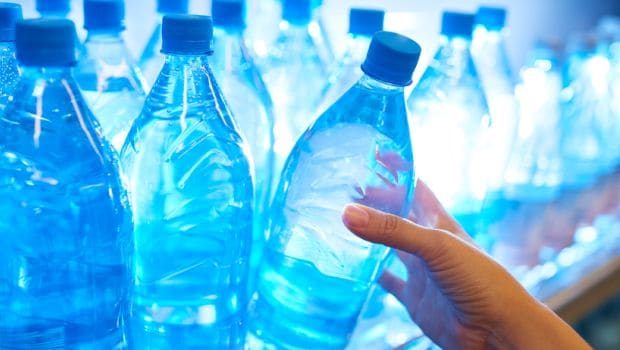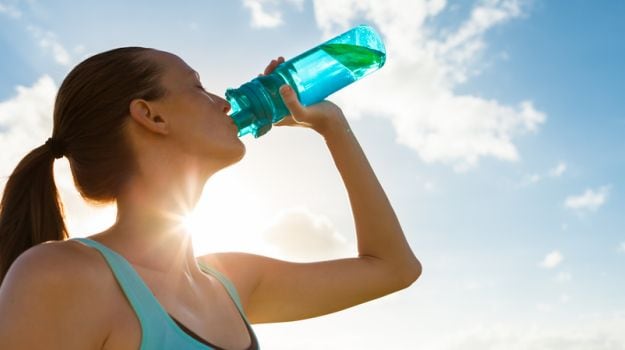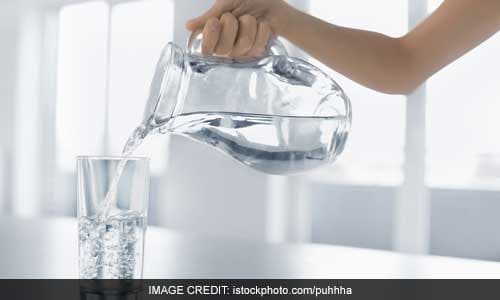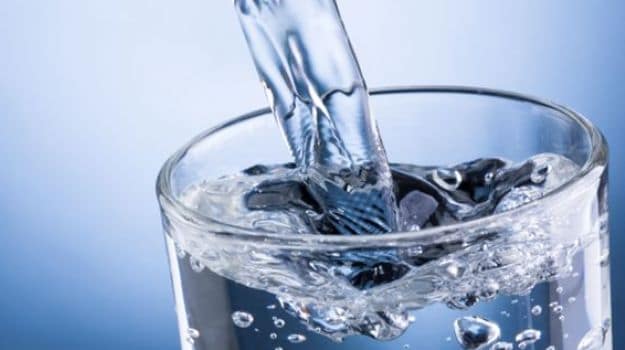Are You Drinking Enough Water? 6 Signs to Look Out For

On a daily basis, the human body loses water, even when you’re not purposely working up a sweat. The amount, of course, varies depending on your activity levels and climatic conditions. The body is however tuned to tell you whether you need to replenish your water reservoir. The easiest way to judge if your body needs water is how thirsty you are. In simple sense, water is essential simply because of its liquid consistency. Water, with its remarkable dissolving properties, is the perfect medium for transmitting substances, such as phosphates or calcium ions, into and out of cells within the body.Your breath, skin, and muscles may be telling you that your body is running low on water. Moreover, your body depends on water to survive. Every cell, tissue, and organ in your body needs water to work correctly. For example, your body uses water to maintain its temperature, remove waste, and lubricate joints. In short – Water is needed for good health.

There is no replacement for water. Drinking sodas or coffee can exacerbate dehydration. Worse yet, sodas, processed fruit juices, and other sweetened beverages are primary sources of fructose, which will only deteriorate your health and worsen the situation. However, by the time your thirst mechanism kicks in, you may already be a bit dehydrated. Most studies show that about 2 in 3 people are dehydrated and need to drink more water.
Indicators that You Need More Water:
It is necessary to understand the subtle signals that your body sends, indicating you need to drink more water. These include:
1) Hunger even though you’ve recently eaten
2) Joint aches
3) Dull, dry skin and/or definite wrinkles
4) Infrequent urination; and/or constipation
5) The color of your urine is an important marker. Dark urine indicates a need to drink more water
6) Exhaustion and/or mood swings

In addition to thirst, it is also important to look at the colour of your urine. You should be drinking enough water to turn your urine a light-colored yellow. Dark-colored urine is a sign that your kidneys are retaining fluids in order to maintain your bodily functions, which includes detoxification. As a result, your urine will seem highly concentrated and dark in color. You may also urinate less frequently, for the same reason. Since thirst mechanism tends to become less efficient with age, older adults need to pay more careful attention to the color of their urine to ensure adequate water intake. Incidence of urination can also be used to judge your water intake. A healthy person urinates on average about seven or eight times a day. If your urine is limited or if you haven’t urinated in several hours, that too is an indication that you’re not drinking enough fluids.
Symptoms of Chronic Dehydration
Symptoms of chronic dehydration will begin to appear when the body loses as little as two to three percent of total body water and can lead to blood clots, seizures, and other potentially fatal complications. The primary symptoms of dehydration are: thirst, dry skin, dark colored urine, and fatigue. But there are also a number of commonly overlooked symptoms that may suggest you’re suffering from more or less chronic dehydration. Such symptoms include:
1) Digestive disturbances such as heartburn and constipation
2) Confusion and/or anxiety
3) Urinary tract infections
4) Premature aging
5) High cholesterol

Prevention:
Chronic dehydration can be escaped if we develop a healthy habit of drinking plenty of water. Additionally, the type of water you drink does make a difference. Mineral balance in the body is also vital for proper hydration. Thus, it is important to drink the right amount of water that is mineral rich rather than de-mineralized water.
There’s no doubt that you need pure water for good health. A simple effort of substituting all the sweetened, bottled beverages you indulge in with regular pure water can go a long way towards improving your health. It works wonders to help you manage your weight too. The amount of water your body needs, however, is something you need to fine tune based on your individual circumstances. It is necessary to understand the body requirements and the obvious signals that it’s high time to replenish your fluids.
